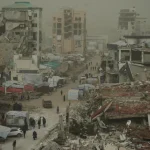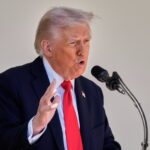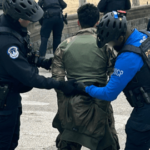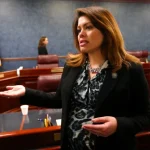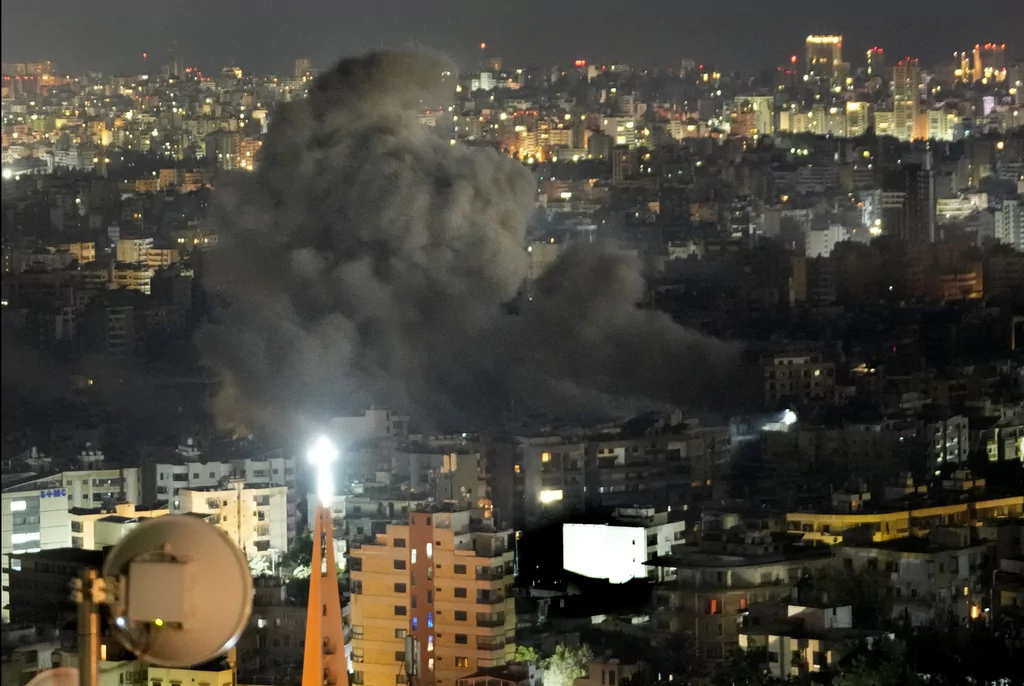
Israel’s bombardment of Lebanon in its attempt to eradicate Hezbollah has led to calls for the resurrection of a nearly two-decade-old resolution that its proponents argue would help restore peace.
Critics, however, believe that United Nations Security Council Resolution 1701 requires no further negotiating and that the failure of its original implementation in 2006 has led to Israel being forced to take matters into its own hands.
“With Hezbollah and Lebanon, we’re working intensely to reach agreements on the effective implementation of 1701, the U.N. Security Council resolution that, many years ago, should have avoided what we’re seeing now but didn’t because it’s never been implemented,” U.S. Secretary of State Antony Blinken announced Wednesday.

The state secretary continued, “It’s absolutely critical that the parties, and notably, Hezbollah, be moved back from the border. That the Lebanese Armed Forces are able to assume their responsibilities, and that we can create an environment in which people on both sides of the border can return to their homes in peace and security.”
The U.N. is similarly pushing for peace in the region via “an immediate cessation of hostilities, moving to the full implementation of U.N. Security Council resolution 1701.”
What is U.N. 1701?
Under U.N. 1701, the Lebanese government is required to disarm all non-government organizations operating within its borders. All weapons and military capabilities would be brought under the control of the Lebanese state, and no foreign forces or weapons sales would be allowed in Lebanon without the explicit consent of the government.
At the same time, Israel and Lebanon are compelled to respect the “Blue Line” border cutting across the south side of Lebanon as a demilitarized area.
The Blue Line is a nearly 75-mile demarcation that creates a “line of withdrawal” between Israel and Lebanon. Both countries’ militaries are prohibited from operating near the Blue Line without advanced notice.
It is maintained by the U.N. Interim Force in Lebanon (UNFIL), an outfit of U.N. Peacekeeping troops stationed when U.N. 1701 was first implemented in 2006.
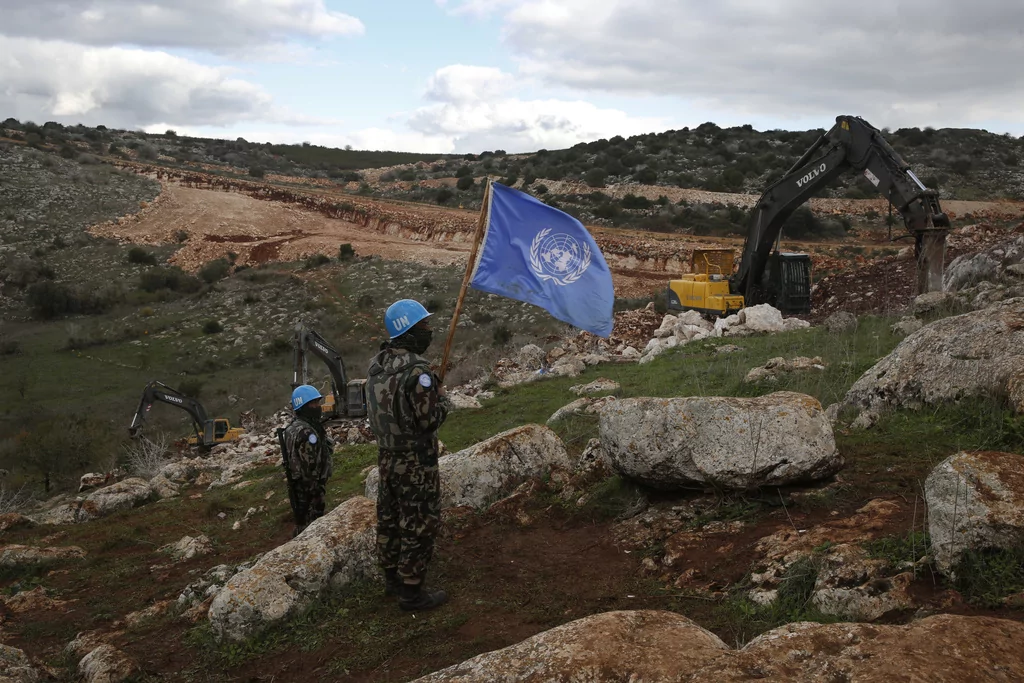
Under the U.N. 1701 provisions, the area between the Blue Line and the Litani River to the north should serve as a “buffer zone” off limits to any Israeli or Hezbollah presence.
What is Hezbollah, and how does it relate to the nation of Lebanon?
Hezbollah is an extremist organization founded by Islamic leaders in 1982 during the First Lebanon War. It is unaffiliated with the Lebanese government and mostly funded by the Iranian regime as a proxy military in the region.
The group, whose name means “Party of God,” operates across Lebanese society via military, political, cultural, and financial initiatives.
Hezbollah has issued manifestos and open letters since its early years declaring Israel a vanguard of U.S. imperialism and calling for the total destruction of the Jewish state. Because of this, the group has been explicit in its intention to ignore all treaties and negotiations made with Israel or the United States.
Hezbollah’s influence in Lebanese society has only become more entrenched since 2006. Their political wing, known as the Loyalty to the Resistance Bloc, holds 13 out of 128 seats in the Lebanese parliament. They’re bolstered by a coalition of ally parties that only recently lost their majority. Hezbollah’s party also holds two seats in the Cabinet.
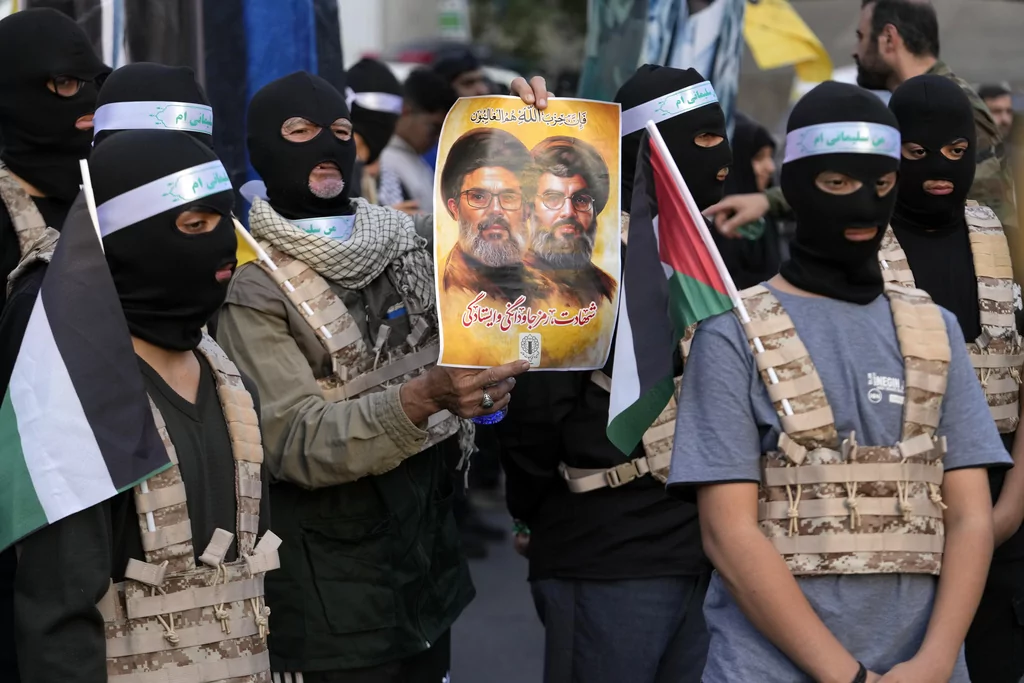
Hezbollah was led by Islamic cleric Hassan Nasrallah from 1992 until September of this year when he was killed in an Israeli Air Force strike on the terrorist group’s headquarters in Beirut. Israel has since claimed to have eliminated Nasrallah’s cousin Hashem Safieddine, who was expected to step up as the organization’s central leader.
The continued assassinations of Hezbollah’s top officials have led to confusion about the future leadership of the group, an uncertainty that the U.S., U.N., and others see as an opportunity to put U.N. 1701 back on the table.
Why did U.N. 1701 fail?
A former senior official familiar with the U.N. 1701 negotiations in 2006 told the Washington Examiner that even on paper, the resolution “was not all that we hoped it to be.”
The Lebanese government, whether out of incompetence, negligence, or malice, never disarmed Hezbollah within its borders following the resolution’s approval.
The UNFIL outfit was successfully set up in the border area between Israel and Lebanon, but the peacekeeping troops were never given the authority to use force against Hezbollah terrorists — an issue caused by passing U.N. 1701 under Chapter VI of the United Nations Charter instead of Chapter VII.
“Chapter VII says that U.N. peacekeepers can use force, if necessary, to prevent threats to peace, whereas Chapter VI doesn’t allow them to do that,” the former senior official told the Washington Examiner. “And so we wanted a Chapter VII mandate so that we have the strongest possible UNIFIL, but we couldn’t get it. The Russians and the French blocked us.”
With no policing by the Lebanese government and no grounds for the U.N. to enter the country to dismantle Hezbollah’s growing arms cache, little was done over the past 18 years to curb offensive operations launched from Lebanon into Israel.
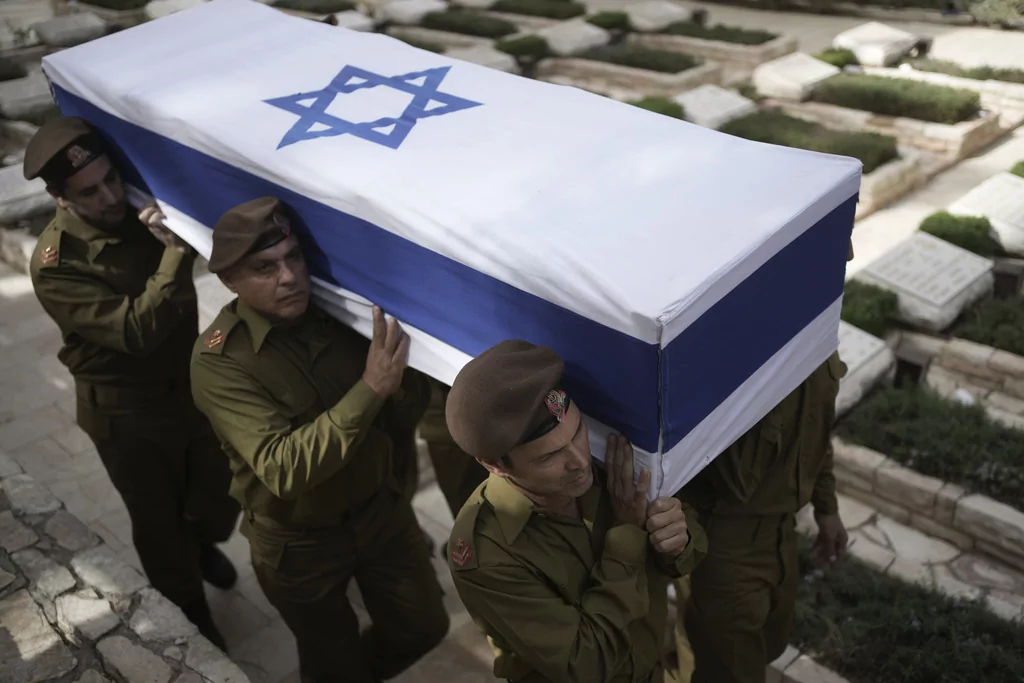
For example, the group’s military wing fired anti-tank missiles at an Israeli army base near the Lebanese border in 2019. UNFIL responded by “urging maximum restraint and asking to seize any activities that are endangering the cessation of hostilities.”
These acts of aggression, coupled with various minor skirmishes, kept the Israel-Lebanon border in a perpetual state of unease.
What is the current conflict in Lebanon?
Following the Oct. 7 terrorist attacks on Israel, Hezbollah fired thousands of missiles into northern Israeli territory as an act of “solidarity” with the Hamas terrorists who entered the country and killed approximately 1,200 Israelis.
Hezbollah’s attacks following Oct. 7 shattered any hopes for a peaceful resolution and spurred Israeli leadership to “settle the score” with the Lebanon-based terrorist group once and for all.
Since then, the Lebanese Ministry of Public Health has reported over 1,000 individuals killed in the Israeli attacks and over 6,300 injuries since the assault on Hezbollah began. The ministry did not clarify the ratio of Hezbollah operatives to Lebanese civilians.
“I want to emphasize, we are not at war with the people of Lebanon. We are at war with Hezbollah,” IDF spokesman Rear Adm. Daniel Hagari said in a video address this week outlining Israeli military actions in Lebanon. “And we will continue to operate against Hezbollah so that the residents of Northern Israel will be able to return to their homes in safety and security.”
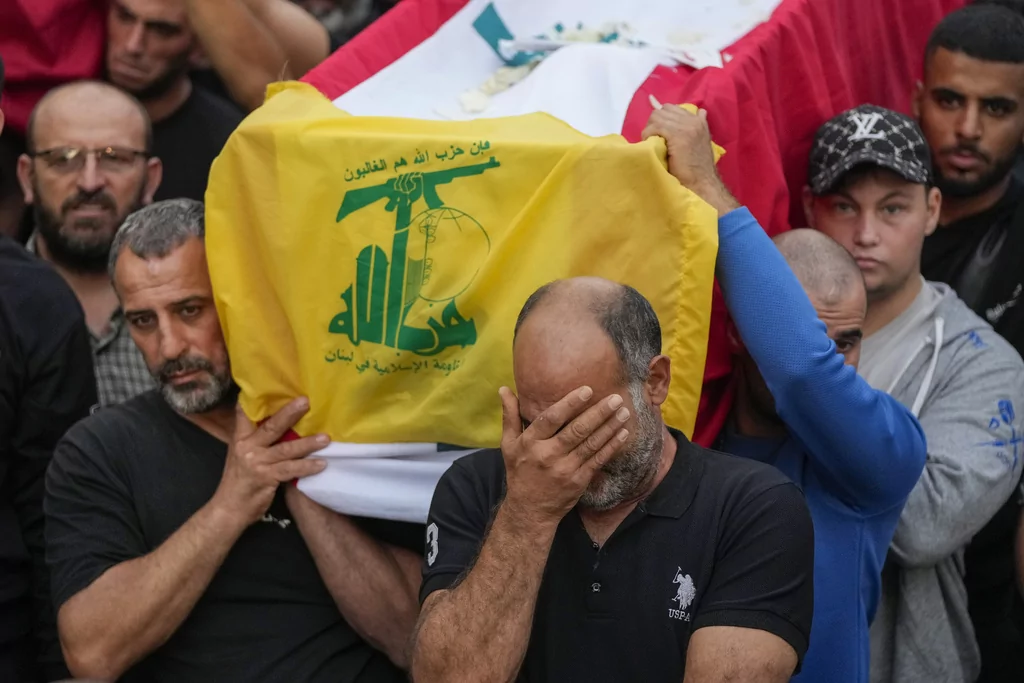
“The lesson I draw, of many from this episode, is that ceasefires are great when they happen because two sides are tired of fighting,” the former senior official told the Washington Examiner. “But ceasefires are not self-implementing. The powers that bring them into effect have to stick with it, and we just didn’t.”
What is the future of U.N. 1701 — and is Israel interested in enforcing it?
Lebanon is facing growing destabilization as Israel continues its crusade against every facet of Hezbollah’s organization embedded in Beirut and beyond.
Lebanese caretaker Prime Minister Najib Mikati has requested that Israel and Hezbollah realign with the tenants of U.N. 1701. He has promised to dispatch thousands of Lebanese troops into the area between the Blue Line and the Litani River to fulfill his role in the resolution.
“We must avoid bloodshed and destruction, and we must implement Resolution 1701,” Mikati told U.S. special envoy Amos Hochstein on Oct. 21.
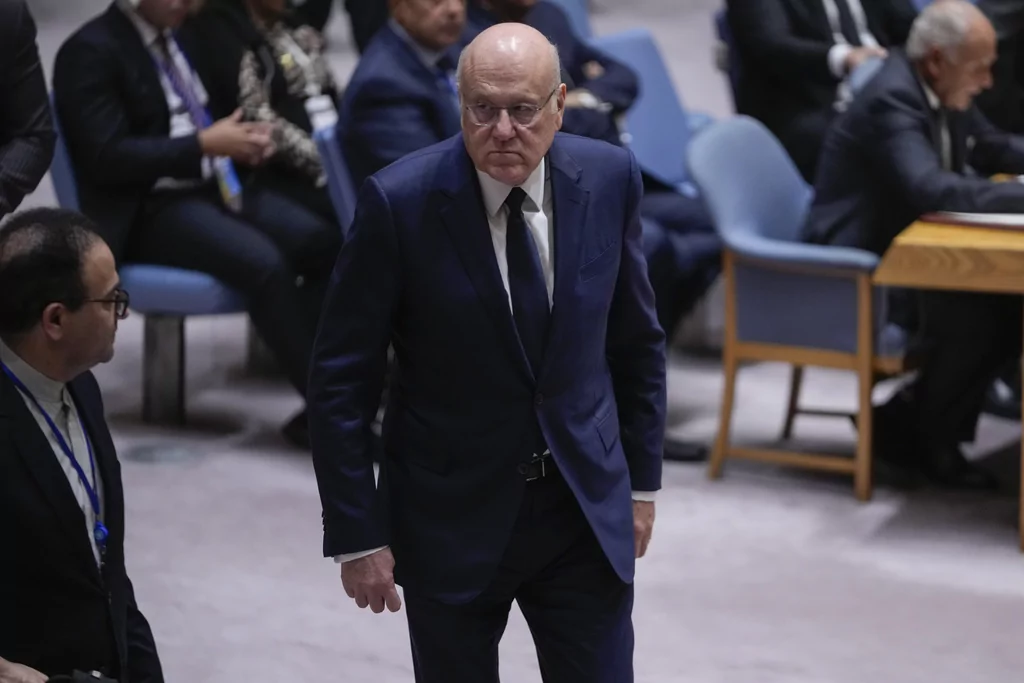
“Lebanese authorities must deploy [across all] Lebanese territory, and weapons should be carried only by the state and the Lebanese army,” the caretaker prime minister said this week at a Paris conference on Lebanese aid.
Despite his enthusiasm for upholding the Lebanese state’s role in the resolution, Miktai is effectively silent when it comes to how Hezbollah will be dismantled.
David Daoud, a scholar of international law and senior fellow at the Foundation for Defense of Democracies, believes that the Lebanese calls for adherence to U.N. 1701 will not ultimately result in the required disarming of Hezbollah.
“When we hear [the Lebanese government mention] Resolution 1701, we hear Resolution 1701 as it’s intended. Lebanon means it the way they mean it,” said Daoud. “And by the time they get a ceasefire, the question of Hezbollah’s weapons will be lost in the Byzantine mazes of Lebanese politics.”
He continued, “The West has so many other things to deal with other than Hezbollah and Lebanon. If in a year they’re still debating this national defense dialogue, this consensus they’re talking about to deal with Hezbollah’s weapons, we’ll have forgotten and moved on, and Hezbollah can regenerate.”
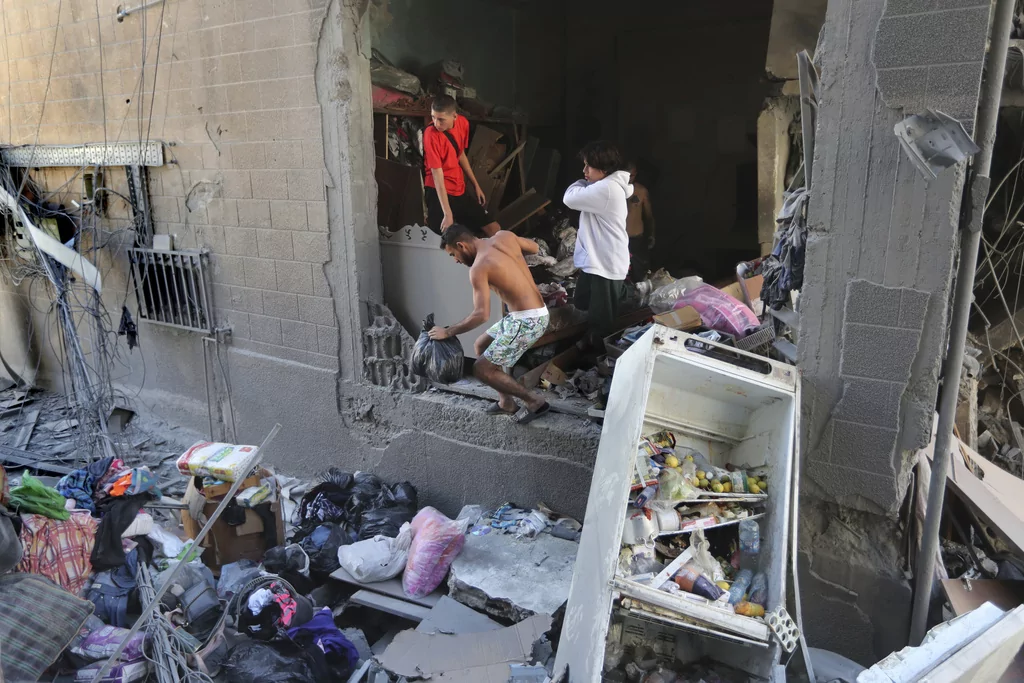
Principal deputy U.S. State Department spokesman Vedant Patel also pushed the necessity of U.N. 1701 in a Tuesday press conference, ignoring the disarmament issue.
“I know that there’s been a lot of interest in 1701 over the past couple of days and perhaps a little bit of misunderstanding in how — or misinterpretation in how it’s being discussed,” Patel told the press. “So let me just be unequivocally clear. What we want to see is the effective implementation of 1701.”
The problem in Israel’s eyes is that these conversations are too little too late.
Israel doesn’t see U.N. 1701 as a document that needs to be amended or re-implemented. Instead, Israel considers the resolution and the lack of enforcement thereof as black-and-white justification for its military campaign.
If Hezbollah remains operational in Lebanon and the U.N. peacekeepers aren’t taking action, the IDF believes it’s their prerogative to remove them.
Blinken and Mikati seemed to acknowledge this when they met on Friday to discuss a “diplomatic resolution to the conflict in Lebanon that fully implements United Nations Security Council Resolution 1701.”
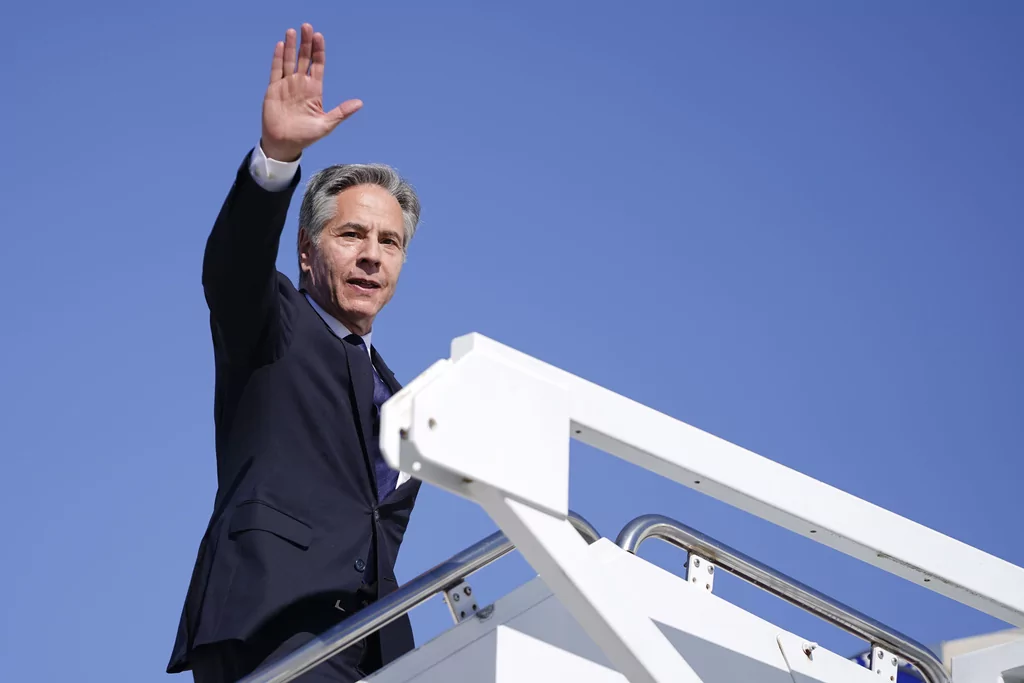
“[Blinken] emphasized Iran and Hezbollah must not stand in the way of Lebanon’s security and stability,” the State Department said of the meeting.
Israel has been waiting almost two decades for the Iranian-backed terrorist cell to be dismantled in Lebanon — a job they explicitly did not want to take on themselves.
CLICK HERE TO READ MORE FROM THE WASHINGTON EXAMINER
Policy discussions are unlikely to convince Israel to pull back their military campaign in Lebanon.
If U.N. 1701 is going to be implemented in the current year, the only way to kickstart the process seems to be the eradication of Hezbollah.
Click here to read more about In Focus.
